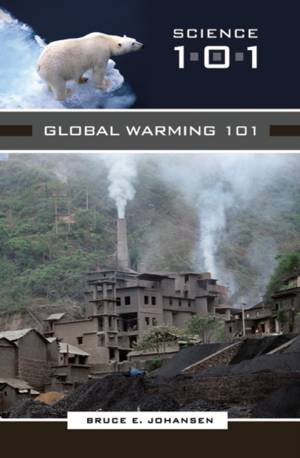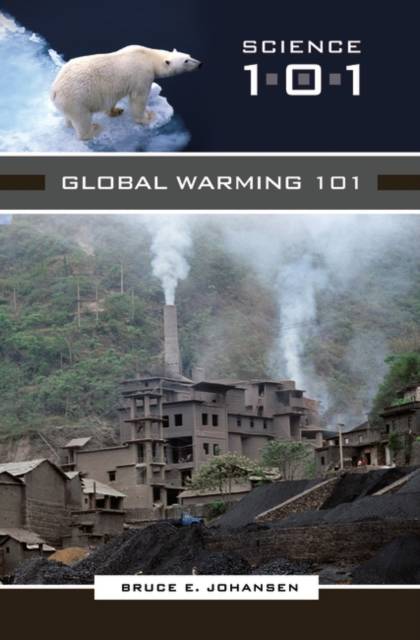
- Afhalen na 1 uur in een winkel met voorraad
- Gratis thuislevering in België vanaf € 30
- Ruim aanbod met 7 miljoen producten
- Afhalen na 1 uur in een winkel met voorraad
- Gratis thuislevering in België vanaf € 30
- Ruim aanbod met 7 miljoen producten
Omschrijving
The accelerating pace of global warming is provoking anxiety that the Earth is reaching an ominous threshold, a point of no return. Within a decade or two, various feedbacks may take greenhouse warming past any human ability to contain or reverse it. Carbon-dioxide levels in the atmosphere are rising rapidly, fed by increasing fossil-fuel use world-wide, melting permafrost, slash-and-burn agriculture in Indonesia and Brazil, increasing wildfires, as well as rapid industrialization using dirty coal in China and India. Global warming may well become the most urgent problem the world faces during the 21st Century . Natural variations are no longer the major contribution (or forcing) in Earth's climate. Human contributions became the major factor about 1950.
This book has been prepared as a reference for high-school students, but it also will be useful for anyone who wants a compact, plain-spoken basic guide to the science of global warming. Global Warming 101 begins with an examination of basic issues, followed by important controversies in the field. The book then describes scientific issues related to melting ice, rising seas, and effects on plants and animals, as well as human health. Global Warming 101 concludes with consideration of possible solutions. Global Warming 101 combines a survey of the science of global warming with reporting from around the world, from sinking Pacific islands and thawing Arctic permafrost, which indicate that significant global warming already has begun.Specificaties
Betrokkenen
- Auteur(s):
- Uitgeverij:
Inhoud
- Aantal bladzijden:
- 216
- Taal:
- Engels
- Reeks:
Eigenschappen
- Productcode (EAN):
- 9780313346903
- Verschijningsdatum:
- 1/05/2008
- Uitvoering:
- Hardcover
- Formaat:
- Ongenaaid / garenloos gebonden
- Afmetingen:
- 167 mm x 242 mm
- Gewicht:
- 458 g

Alleen bij Standaard Boekhandel
Beoordelingen
We publiceren alleen reviews die voldoen aan de voorwaarden voor reviews. Bekijk onze voorwaarden voor reviews.











